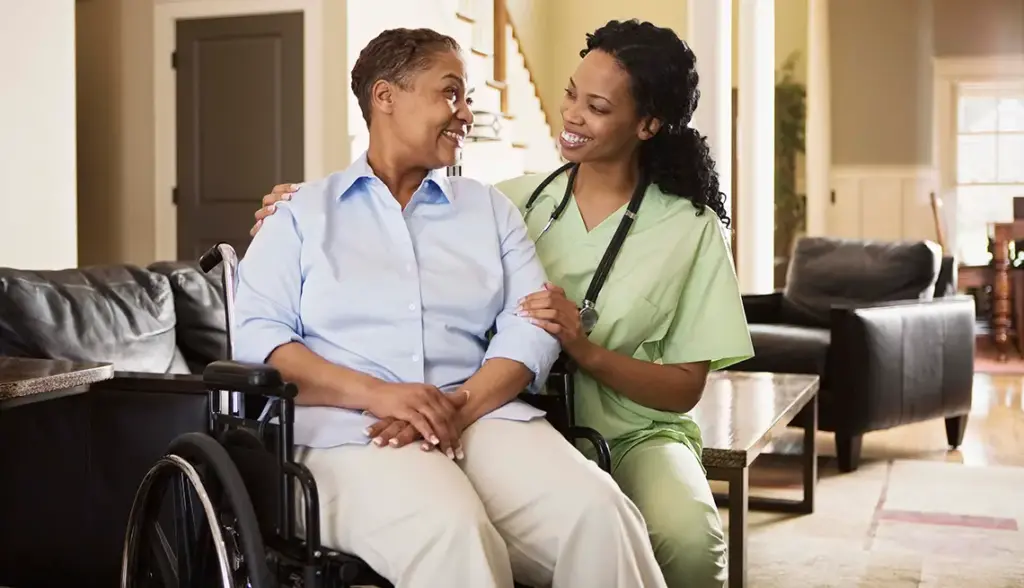Personal Attendant
Telephone:
214-970-6351

Also known as a personal care attendant (PCA) or personal assistant, provides support and assistance to people who need help with activities of daily living (ADLs) due to age, disability, illness, or injury.
Assistance with Activities of Daily Living (ADLs):
Personal attendants help clients with tasks related to personal care and hygiene, such as bathing, grooming, dressing, toileting, and oral care. They may also assist with mobility, transferring in and out of beds or chairs, and positioning to ensure comfort and safety.
Medication Management:
Personal attendants may assist clients with medication reminders and medication administration under the direction of a LVN or RN. They may help clients with opening medication containers, reading labels, and organizing medications in pill organizers.
Meal Preparation and Feeding Assistance:
Personal attendants may help clients with meal planning, grocery shopping, meal preparation, and feeding according to dietary preferences and restrictions. They may also assist with feeding if the client has difficulty feeding themselves independently.
Light Housekeeping:
Personal attendants perform light housekeeping tasks to maintain a clean and orderly living environment for clients. This may include tasks such as tidying up living areas, doing laundry, washing dishes, and changing bed linens.
Companionship and Emotional Support:
Personal attendants provide companionship and social interaction to clients by engaging in conversation, accompanying them on walks or outings, and participating in recreational activities. They may also provide emotional support and encouragement to clients.
Transportation and Errands:
Personal attendants may assist clients with transportation to medical appointments, grocery shopping, or other errands. They may drive clients in their own vehicles or accompany them on public transportation.
Monitoring and Reporting:
Personal attendants observe clients for any changes in their condition or behavior and report concerns to the appropriate LVN, RN, Physician or family members. They may also take and record vital signs, such as blood pressure, pulse, temperature, and respiration.
Safety and Fall Prevention:
Personal attendants help ensure the safety of clients by identifying and addressing potential hazards in the home environment. They may assist clients with using mobility aids, such as walkers or canes, and implement fall prevention strategies to reduce the risk of accidents and injuries.
Overall, personal attendants play a crucial role in supporting individuals to maintain their independence, dignity, and quality of life by providing assistance with daily tasks and personal care. They offer essential support and companionship to clients, helping them to remain as self-sufficient and engaged as possible in their daily lives.

